January 3, 2025 | 03:17 GMT +7
January 3, 2025 | 03:17 GMT +7
Hotline: 0913.378.918
January 3, 2025 | 03:17 GMT +7
Hotline: 0913.378.918
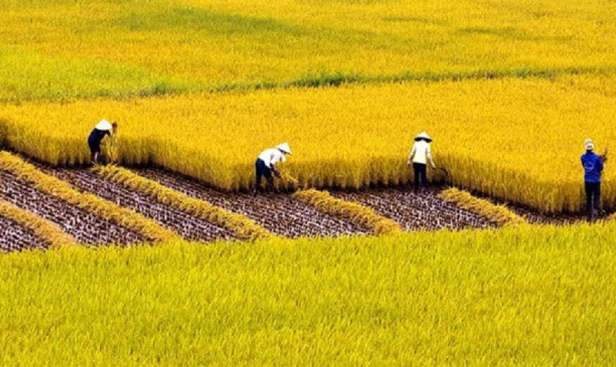
Credit institutions proactively balance capital sources and reduce costs by considering applying a loan interest rate of at least 1% per year lower than the loan interest rate of the corresponding term currently applied to customers.
According to the announcement of the State Bank, Implementing Decision No. 1490/QD-TTg dated November 27, 2023 of the Prime Minister approving the Project "Sustainable development of 1 million hectares of high-quality and low-emission rice cultivation associated with green growth in the Mekong Delta by 2030", the State Bank of Vietnam (SBV) has coordinated with ministries, branches and localities to develop a lending program linking production, processing and consumption of high-quality and low-emission rice products in the Mekong Delta.
The lending program is in 2 phases: the pilot phase from now until the end of 2025 is lent by Agribank as the main lending bank, and the expansion phase from the pilot to 2030 is lent by credit institutions (CIs).
The credit institution lends using its capital, so the lending is carried out under a commercial mechanism with lending conditions according to the current regulations of the credit institution for customers. The purpose of lending is to meet the short, medium, and long-term capital needs of all stages (production, purchasing, processing, consumption) in the rice linkage.
Regarding lending interest rates, credit institutions proactively balance capital sources and reduce costs to consider applying lending interest rates that are at least 1% per year lower than the lending interest rates of the corresponding term currently applied to customers of the same term/same group.
Currently, the Ministry of Agriculture and Rural Development and the People's Committees of provinces and cities have not yet announced the actual cost norms for implementing the rice production stage in the rice linkage, so credit institutions do not have a basis to assess the capital needs to serve the linkage chains according to the project. However, in principle, the ability to disburse depends on the actual capital absorption capacity of the entities participating in the linkage.
In addition to the above-mentioned preferential interest rate reduction of 1%, entities participating in rice linkages also enjoy many other incentives according to the provisions of Decree 55/2015/ND-CP dated June 9, 2015, Decree 116/2018/ND-CP dated September 7, 2018, of the Government on credit policies for agricultural and rural development as follows:
Firstly, the maximum unsecured loan amount is from VND 100 million to VND 3 billion (depending on the individual customer, cooperative group, or collaborative).
Secondly, the lending policy encourages agricultural production under the linkage model, high-tech agriculture with unsecured loans up to 70%-80% of the value of the plan or project; also, regulations on cash flow management in agricultural linkage loans aim to limit risks and encourage credit institutions to increase lending.
Thirdly, there is a specific debt handling mechanism such as restructuring the repayment period and maintaining the debt group for customers facing difficulties due to objective and force majeure reasons; debt cancellation mechanism for customers facing risks due to natural disasters, large-scale epidemics, or customers who are focal linkage organizations, high-tech enterprises facing risks due to objective and force majeure reasons.
Fourth, the policy encourages people to buy insurance in agriculture by reducing loan interest rates by at least 0.2% per year compared to the interest rates of loans of the same type and with corresponding terms.
Credit institutions restructure the repayment period and maintain the debt group for customers facing difficulties due to objective and force majeure reasons. The debt rescheduling mechanism is applied to customers facing risks due to natural disasters and epidemics on a large scale or customers who are focal organizations or high-tech enterprises facing risks due to objective and force majeure reasons.
In the coming time, closely following the direction of the Government and the Prime Minister, with the coordination of ministries, branches, and localities, the State Bank of Vietnam is committed to continuing to accompany and actively coordinate with relevant agencies to promote the implementation of the lending program in particular and the project "Sustainable development of one million hectares of high-quality and low-emission rice cultivation associated with green growth in the Mekong Delta by 2030.
Vietnam is the first country to implement the large-scale Emission Reduction Rice Production Program. Approved by the Prime Minister at the end of 2023, this is also the first project in the world to produce one million hectares of high-quality, low-emission rice at the Government-directed scale, so it has received much attention from international partners.
The Ministry of Agriculture and Rural Development said seven pilot models are being deployed in 5 provinces and cities: Can Tho, Dong Thap, Kien Giang, Tra Vinh, and Soc Trang. 4/7 pilot models for the Summer - Autumn crop in 2024 have reported positive results, encouraging farmers and businesses greatly.
Translated by Huong Giang

(VAN) Livestock production is a cornerstone of agrifood systems, providing essential nutrition and economic opportunities worldwide.
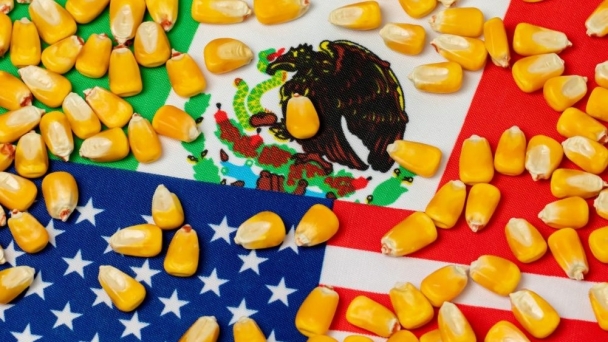
(VAN) With Mexico accounting for nearly 50% of total US corn export sales annually, US corn growers hailed the decision as a major victory.
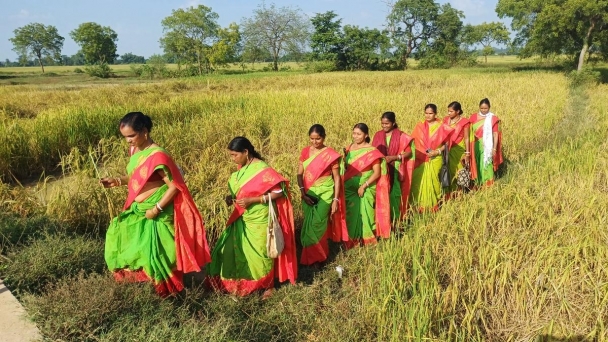
(VAN) Thousands of women in West Bengal’s Jhargram district have set up a farmer producer company, Aamon, cultivating indigenous varieties of paddy without using lab-made fertilizsers.
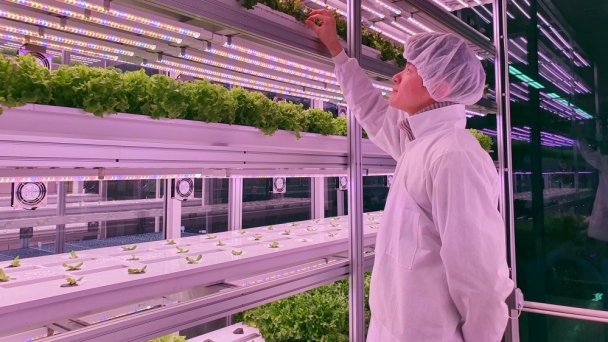
(VAN) Achieving food security and sustainability is a top priority for Saudi Arabia as it works toward building a more inclusive economy.
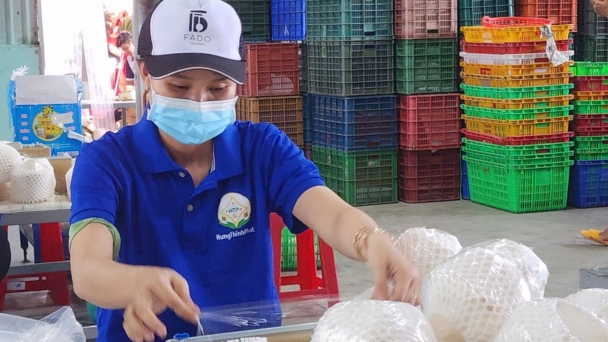
(VAN) Tien Giang province is actively inviting domestic and international investors to explore opportunities in its burgeoning coconut industry, which boasts significant untapped potential.
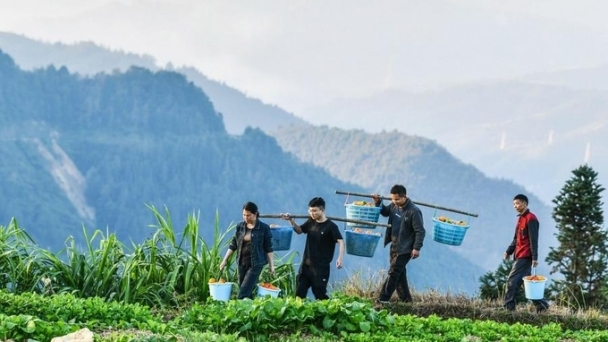
(VAN) Chinese President Xi Jinping has urged further deepening rural reform and making solid advances toward the goal of building up China's strength in agriculture.
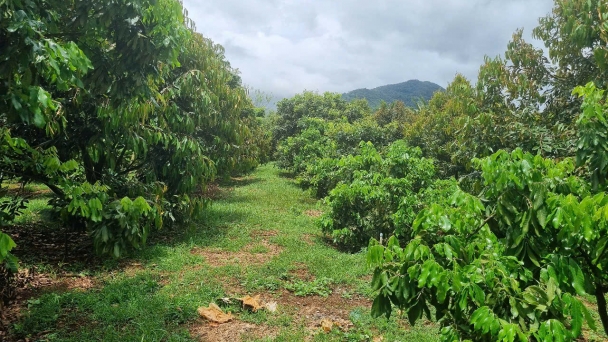
(VAN) Recovering degraded soil is a prolonged, enduring process that demands solutions on mechanisms, policies, infrastructure investment, science technology and agricultural extension, etc.